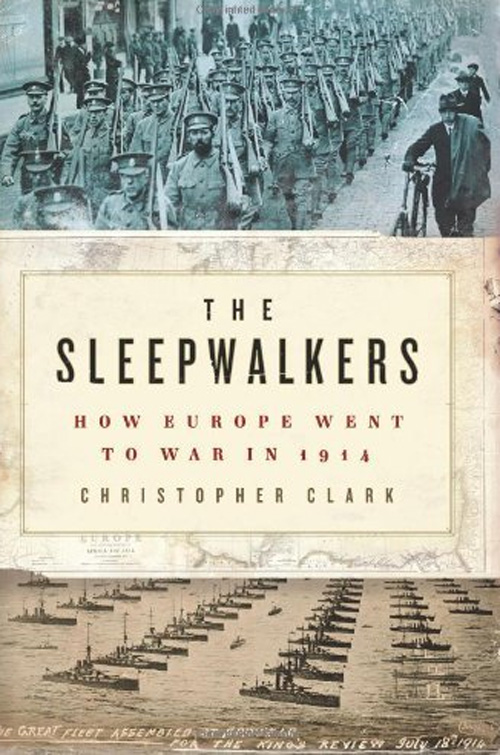The Sleepwalkers: How Europe Went to War in 1914
Review

The Sleepwalkers: How Europe Went to War in 1914, Christopher Clark, Penguin Books, 2013, 697p, £10.99, ISBN: 978-0-141-02782-1.
Among the many books published about the forthcoming centenary of the First World War, Christopher Clark, the distinguished historian, has produced a masterly survey to try and answer the question - How, after a century of almost general peace, did Europe's Great Powers become involved in the devastating war which started in August 1914?
Step by step, the author has examined the build-up which eventually led to war. He rejects simple explanations, such as ‘Balkan Rivalries', ‘German Ambitions' or ‘Naval Competition'. Instead, by using as many sources as possible to explain the actions of each country, he develops the themes of complicated relationships between the Powers. He has produced details on policies, not just in the leading states, but also in smaller nations such as Serbia and Romania.
He gratefully acknowledges the linguistic help he received in dealing with surviving sources. This book is based on very detailed research and takes us through the developing European crisis which finally exploded in 1914. The account moves smoothly between the main players and their attitudes towards each other and the likelihood of war. Not everyone believed war would happen and, for those who did, that it would not last long. The tragedy is that the outcome was so disastrous for the peoples of 1914.
Well supported with maps and contemporary photographs, this book provides a thorough examination of what actually happened in the years and months leading up to August 1914. It makes fascinating reading and leaves us with the hope that modern nations understand affairs better than they did in 1914, but we can't be sure of that.

